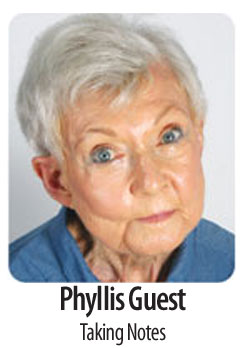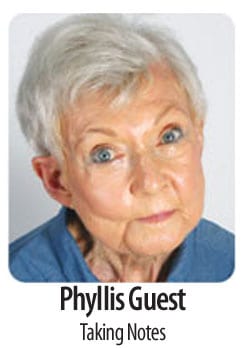It takes planning, paperwork and more to make sure that LGBT elders are safe and happy
 At the Resource Center’s United Black Ellument Health Fair in April, I picked up a flyer from FORGE, an organization with which I was not familiar. Entitled “Safety Planning with Transgender Clients,” the document astonished me. It also made me think about safety in new ways.
At the Resource Center’s United Black Ellument Health Fair in April, I picked up a flyer from FORGE, an organization with which I was not familiar. Entitled “Safety Planning with Transgender Clients,” the document astonished me. It also made me think about safety in new ways.
The first thing I did after reading the flyer was to reach out to Nell Gaither, president of Trans Pride Initiative. She wrote right back and, sure enough, not only knew about FORGE but had taken some of their online training sessions. The website — Forge-Forward.org — contained a lot of information about dangers most of us have probably never considered.
But a lot of the FORGE information on staying safe as a transgender or gender-nonconforming individual applies to the rest of us, all of our community members and allies.
For example, a separate resource sheet entitled “LGBT Elders: Domestic Violence/Sexual Assault” points out that authorities and others frequently overlook or ignore ghastly behavior perpetrated by one elder against another —especially if they are of the same sex or are perceived as being frail. (As a side matter, this unconscious overlooking or conscious dismissal is familiar to women my age — straight, gay, bi or trans. This is exactly the way the police and other authorities used to view abuse against women by men. If police were called to a dispute by the female victim or a third party, they never questioned the man. This was true nationwide, and in Texas, women could not then escape, since the law did not permit us to sign a lease or have a bank account or charge card. But back to the present issue. …)
I have no idea whether this is accurate, but FORGE cites a Network/La Red assertion that one in four LGBT people are battered by a partner. That is consistent with the 12-36 percent estimate of violence against heterosexual women and within gay male pairings.
In any case, if you are interested, you can find much more on the FORGE website. The site also has info on the Transgender Aging Network (TAN), which offers free membership and many services and outreach mechanisms.
And then the site points to an organization embracing the whole of our community: the National Resource Center on LGBT Aging (LGBTAgingCenter.org).
Which brings us to a different kind of abuse that’s mentioned on that site but is often overlooked by LGBT individuals and by significant others, friends, families and allies. It is, in short, financial abuse.
We’re no different from other Americans when it comes to paperwork. If possible, many of us lock our desk drawers and slam our minds shut when it comes to wills, powers of attorney, etc.
But wait! Just recently, Dallas attorney Rebecca Covell spoke to Dallas Voice about what same-sex couples moving to Dallas would need by way of protective paperwork. Here’s the list of basics: Updated wills for each person, medical powers of attorney and HIPAA releases, statutory durable powers of attorney, declaration of guardian, directives to physicians, and appointment of a person to control the disposition of remains.
Covell estimated the cost of having an attorney handle these documents at $850.
You see where I’m going here. If you want to protect your assets as you age, and make sure your end-of-life wishes are carried out, you absolutely must have all your docs in good order and accessible to not just a loved one but to a professional, too. I have not yet had a chance to investigate how those of us with little spare cash can get the documents, because $850 is a big investment for many of us.
But I will investigate, because I have every document at the ready — and every one is 15 years old. That won’t help me, my only sibling, my friends or my physicians. It won’t even tell them whether I want to go into a large box or a small urn.
Other aspects to aging also hold the potential for loss, abuse, and neglect, or — in case you and your spouse become unwell at the same time — over-care by people who should know better.
Meanwhile, don’t take any vague assurances or any nasty falls.
This article appeared in the Dallas Voice print edition July 25, 2014.

